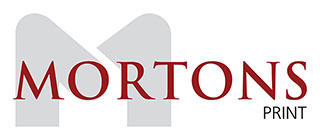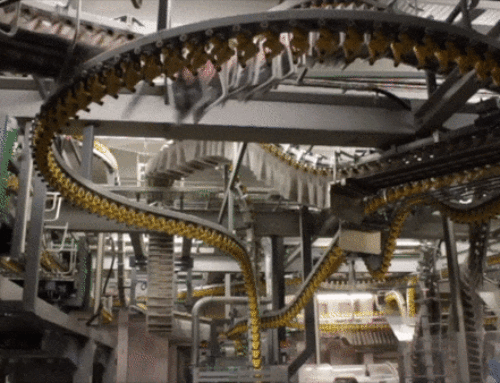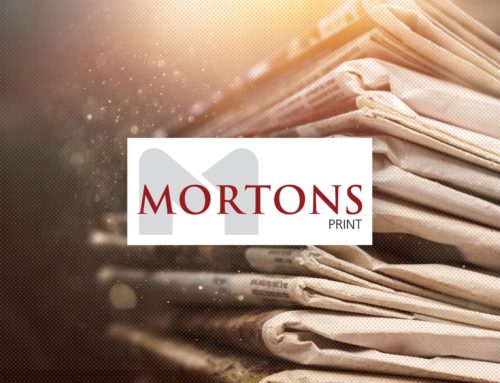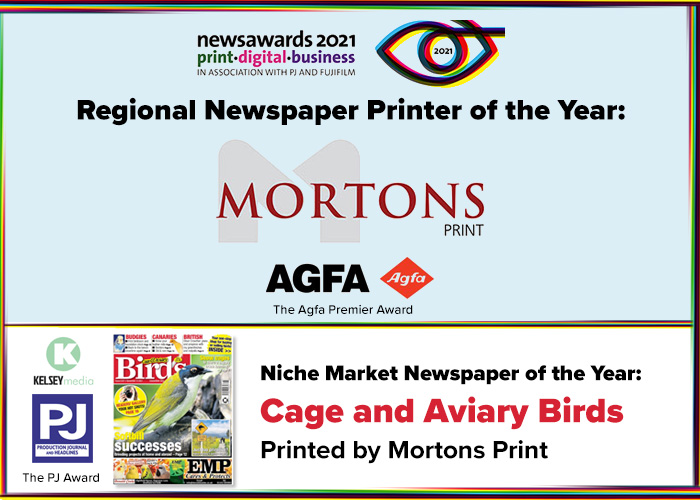 DAVID CROW earned his first wage packet as a schoolboy with an early morning paper round. He is now managing director print and logistics group services division at JPIMedia, a member of the Newspaper Industry Materials Committee, chairman of the industry’s Contingency Planning Group, a chartered engineer and has served the industry for 43 years. And to top it off, he has just received a lifetime achievement accolade in the annual JPIMedia Awards
DAVID CROW earned his first wage packet as a schoolboy with an early morning paper round. He is now managing director print and logistics group services division at JPIMedia, a member of the Newspaper Industry Materials Committee, chairman of the industry’s Contingency Planning Group, a chartered engineer and has served the industry for 43 years. And to top it off, he has just received a lifetime achievement accolade in the annual JPIMedia Awards
1. Describe your normal typical working day Pre-Covid i would spend my time travelling between the three print sites in JPIMedia – Sheffield, Portsmouth and Carn – plus visits to customers and representations on industry forums/committees.
There is no such thing as a typical working day in the print industry as business is changing at an alarming rate. In recent months I have been a home worker using Google Meet and Zoom to talk with my teams and customers to keep abreast of all that’s going on and managing change through these exceptional times.
2. What do you love about your work? The variety of subjects that are covered as well meeting and working with great people. This industry is blessed with like-minded individuals who are pleasure to work for and with. I also love the freedom in JPIMedia of being able to run the business operationally as if it were my own. This gives confidence to the staff and makes most decision making easy and quick. Not lost in bureaucracy or committees!
3. How do you make a difference? I make a difference by my attitude to work and life. I strongly believe that to get the best out of people you need to tell and reassure them that they are doing a great job, learn from mistakes and empower them to give them credibility and position.
4. What was your first job? My very first job was as a paperboy in my home village of Uphill near Weston-super-Mare. In fact, in the summer I did two paper rounds starting at 5am and before school. I loved the holidays when I could take papers onto the holiday caravan sites and shout ‘papers and magazines for sale’ and the punters used to queue, especially when it was raining. Those paper bags were heavy, but if you wanted a new /secondhand bike you had to earn pocket money to get it. Also, it was great being at the seaside as the audience changed every week.
5. Why and how did you pursue a career in the newspaper industry? After leaving university, where I qualified as an engineer, I worked for a company called GEC Mechanical Handling in Melksham, Wilts (now a furniture store) that had ties within the group with a company called Witton James, which sold press drive systems, reel stands and tension equipment to the print industry. Initially, my job was working on manual handling projects such as ship unloaders in Leith docks, baggage handling in Heathrow and engine production lines in Ford at Basildon. One day I was asked to work in Witton James because of electrical / electronics background.
The job was to work with engineers on press installations and quickly I moved into management. It was great working in Fleet Street, Gray’s Inn Road and in many European countries such as Finland, Norway and Denmark. I learnt a lot in a short time and soon got ink in my blood. Then, one day working at the Nottingham Evening Post, Christopher Pole-Carew, then MD, asked me how much WJ paid me and offered me a 50% increase to join him. A tough decision, especially as the then Mrs Crow’s home was Derbyshire and we were at that time living in Bath. I worked at NEP for 10 years as Operations Director and then The Mail bought out the family and I was fortunate to land a job in John Street with Northcliffe for three years.
Travelling the Northcliffe empire was great. Helping and advising where needed – or not in some cases. But meeting great people passionate about their industry. And we made money too. In the summer of 1997, whilst on one of the infamous Thames boat trips held by Sun Chemical, I heard that Johnston Press was looking for a divisional MD of print and next day the headhunter contacted me. See, there is always value in these industry get togethers with our print families.
I met Tim Bowdler, the then MD of Johnston Press, and we hit it off straight away and I joined JP on 2 January 1998 as divisional MD of print and have now been there for 20 years.
6. If you were not in your present role, what would be your dream job? My dream job would have been to follow in my dad’s footsteps as a successful musician. My dad had a fantastic career entertaining folk and backing up-and-coming stars of the day such as Tom Jones, Englebert Humperdink and Cilla Black as they trod the boards in their early days of fame. His ambition was to read and write music and be recognised, all of which he was. He entertained in Weston-Super-Mare at the main venues of the Winter Gardens, Playhouse and Pontins holiday camp and he was very good with a career that went for more than 65 years. The talent of playing an instrument and making people happy just seems like a great recipe to me. Unfortunately, I am tone deaf and the only person who enjoys my singing is me in the car. Dad was always too busy to teach me and my sister and both of us hated having to go to piano lessons. Pink Floyd’s roadie would be up there as one of my dream jobs too. 7. Who has influenced you the most, either in your career or on your life? My dad was a big influence; seeing him work hard to be successful and recognised.
At work there are a few people who have helped and supported my career. Some have shown how to behave and be honest and trustworthy, others not so and I have the scars to prove it. I think you learn from every aspect of life what is right and wrong. This was drummed into me by my mother in childhood. I have seen many styles of management from the dictatorial type, ruling by fear, and others who have given me opportunities to develop and grow. I like to think I am the latter with my team in preparing them for change and when it’s time to pass the baton on.
8. What has been the most interesting place you have ever visited, and why? One of the most interesting was Finland. One of my first installations was in a big print works in the middle of Finland at a place called Mikkeli. When I arrived in a raincoat it was -25 degrees. I was met at the airport, only three of us on the plane, and was taken to the printworks where they had problems. I got to my hotel two days later having fixed the problem, but very tired. The thing that struck me was the different culture and friendliness of the Finns. When the equipment worked they celebrated – and I mean celebrated, big time. When it didn’t work everyone was there helping and working together. I was also struck by the climate; it was very cold, only three hours of daylight and the town – sitting near the Russian border – had fall out shelters that accommodated everyone. Bizarre yes, but history tells you these people beat the Russians back in previous wars and there aren’t many of them. Going back to Finland the following summer showed me a contrast I couldn’t have imagined. Two months of summer does not get dark, all the lakes are now open and with barbecues on all the islands – not surrounded by ice anymore and, yes, it was party time. No sleep because it’s dark in the winter, plenty of time then for sleep. Must admit jumping in the lake in the summer from the sauna was far more pleasant than in a hole cut out of the ice in the winter. Great place Great people. Great work ethic of work hard, play hard. If you are young of course …
9. What has been your career highlight, to date? This has to be the massive investment we made at Dinnington and Portsmouth for presses on the back of 2 x 15 year print contracts to print the Sun and News of the World. The deal was orchestrated between myself and Ian MacDonald of News International, and we sat in the yacht club at St Katharine Dock drawing it all out on the back of a serviettes. All I had to do was convince Tim Bowdler and the board that we should spend £11 m on presses and buildings etc – and we did. The world changed though when the NoW closed and News International came out of the contract. But that buzz of printing 500k copies at each site and to build a team to deliver was one of my highlights.
There are, of course, many highlights in my illustrious career and so there should be after so many years!
10. What in your opinion, has had the biggest impact on your work, before Covid-19 and currently? The biggest impact has been the speed of change and the need to adapt very quickly to it. We are in a consolidating industry with volumes dropping and titles closing. Changes in people’s habits take us away from the printed word and onto phones and tablets. I have seen my print sites over the 20 years change for 24 to three. Yes, we have consolidated sites and outsourced business and others are following suit. Capital investment is now near non existent as all the groups and independents control costs and manage declines. It’s very sad, but a reflection of the times that we must build on. Our principles of trust, honesty and integrity have stood us well for a great reputation in the market and long may that continue.
11. What changes to working practices do you see for newspaper manufacturing as the ‘new normal’ unfolds? I see newspaper printers having to work closer together to become more efficient and to maximise the distribution networks by sharing transport and back of house services. Independent printers will struggle if they do not have strategic partners to work closely with. It is inevitable that the bigger operations will need to share these resources to maximise output.
More automation is likely to happen but there will be pressure on large capital spends that do not show short term returns. This is a real challenge as markets tighten and titles merge or close. No doubt individual company egos will have to be overcome if the common goal is to be achieved. I believe the printed word is here for some time to come but consolidation of ideas and printing operations is the only way to longevity.
12. Theresa May once said the naughtiest thing she ever did was to run through a farmer’s corn field? What is the naughtiest thing you have done [that you can confess to ? I have no real naughty things to confess to (he says, smiling to himself), however maybe not for the printed word!!!
13. How do you spend your spare time? What little time I do have spare is taken up looking after my loved ones, playing some golf and trying to keep ahead of the game. I enjoy watching films and cycling has become a bit of an obsession in lockdown. I wish I could say I have lost lots of weight, I possibly have picked up weight that others have lost.
* a subbed version of the above 10pt Talking Point column appears in the October issue of PJ – the news industry’s monthly news magazine





